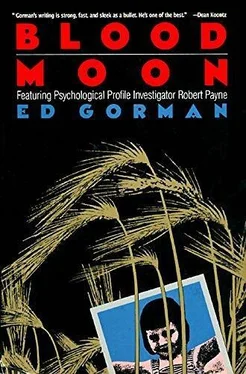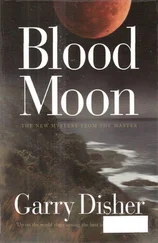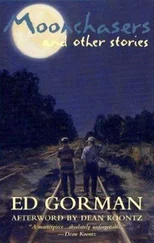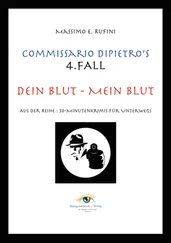I thought of the quiet, anxious, pretty woman who sat on my couch last night. I would not have deduced from her looks, her manner or her language this wild background she was portraying.
“Then there were all the usual problems with drugs and alcohol,” she said. “I have to admit I really put him through hell. No doubt about that.”
“Why is he so against you hiring an investigator for your daughter’s murder?”
“He thinks I’m the same unhappy, foolish girl who used to come in after curfew all the time and then throw fits when he confronted me. He’s very sorry that Maryanne died, but he thinks I’m just wasting my money and my time by not letting the police handle it. ‘Pathetic’ was the word he used just the other day.”
“I’m going to do my best, as I said.”
“I appreciate that. And I apologize again for being so—”
“—peevish.”
She laughed again. It was a nice, sweet sound. “I’ll give you a phone service where you can leave messages for me. I’ll get back to you as soon as I can. And I’d appreciate hearing from you every few days.”
“You will. I promise.”
“Well, we’d better check out now. I have to go down the hall to Vic’s room and pound on his door till he wakes up. He could sleep through a bombing raid.”
“I’ll talk to you soon.”
Crayfish, shrimp tails, chicken entrails, hog melts, worms, night crawlers, live and dead chubs, coagulated blood, sour clams and frog pieces were all in my bait bucket when I went fishing that afternoon.
Figured this would be my last chance for a time, so I took advantage of it, doing a little bit of what they call drift fishing, wading out to the middle of the stream and staying there a couple of hours.
I saw yellow birds and red ones and blue ones, I heard dogs and owls and splashing fish, I smelled the rich dark spring mud of the riverbank and the piney scent of the woods and the aroma of hot sunlight on the denim of my shirt. I was on a gentle leg of the river that was almost a cul-de-sac. A doe stood in a clearing and watched me for ten full minutes and a water snake at least two feet long slithered up from a muddy hole, looked around, and vanished back into the hole again immediately, apparently not liking my company. A cow with cowy brown eyes and swinging cowy tits appeared in the same spot the doe had and took up the watch, trying to figure out just what it was this two-legged creature was doing out there in the middle of the gentle blue river.
Easy to imagine the time when the Mesquakie Indians had laid claim to all this rich land. See the gray of their campfire smoke against the soft blue sky, hear the pounding messages of their drums echo off the limestone cliffs to the north. As a boy I’d combed these hills for buried arrowheads, almost obsessive in my search. In all those summer days I’d found only one. I still had it in my bureau at home. Kathy had always referred to it as “the start of my Indian museum.”
I got home just at dusk, just when the invisible birds in the trees were making enough noise to awaken every Mesquakie laid to rest in the burial ground three miles to the west.
I got inside and turned the light on and said, “Damn.”
We’ve seen it in the movies so many times that we should be used to it: how a house looks after thieves have gone through it, trashing everything in their search for hidden treasure, your living quarters a jumble of scattered papers, neckties, overturned chairs, emptied desk drawers and magazines that had been riffled through and then tossed on the floor like so many dead splayed birds.
I had a good notion of what my visitor had been looking for and it wasn’t treasure. Not of the monetary kind, anyway.
He’d wanted something germane to the investigation of Maryanne Conners’s murder.
I worked my way through the house room by room. By nine I had everything pretty much fixed up, shoving a stack of paperbacks under the end of the couch where he’d broken the leg, putting all the classical CDs that had been Kathy’s back in their proper slots, wondering in a bemused moment what he thought of all my underwear and socks that had been worn down to little more than holes with elastic banding at the top.
I felt raped, and for all the coolheadedness I’d just bragged about to Nora, I wanted to get my hands on the bastard.
Six hours later, deep into the night, the cats snoring at my feet, the phone rang.
I picked up.
“Leave it alone, Mr. Payne. Just leave it alone.”
Perfectly androgynous voice. Perfectly.
“You understand, Mr. Payne?”
And then he-she hung up.
I lay back down in my bed of shadows.
Knowing that I was now lying on my back, Tasha took the opportunity to walk up my body and lie on my chest, which she had found a most inviting bed.
I hadn’t had to ask what the caller wanted me to leave alone.
Cellmate the first year is a fifty-one-year-old farmer named Renzler. Frank Renzler.
Frank, who has told him this story so many, many times, was a farmer with a wife and two kids. Bank foreclosed on him after two bad droughts in a row, so Frank couldn’t help it: one day he just picked up his hunting rifle and drove into town and blew away the banker. Took maybe one-eighth of his head off with two shots.
He cries, Frank does. No, check that. Not merely cries. Sobs. Lies on his bottom bunk and just goes nuts.
Talks about his wife. His kids. How much he loves them and misses them and all he ever wanted to be was a farmer like his old man and his grandpa and why did the bank have to foreclose on him, anyway, why did they have to, huh?
He’s also the one with the bowel problems. Guy must have diarrhea three times a day. Just sits there on the crapper, no more than four, five feet away from the top bunk, and cuts away.
In the spring, Frank finds the puppy.
Nobody can explain how it got inside the prison unless it was a stowaway on one of the potato trucks that come in here twice a month.
But there one day in the machine shop where he works, just all balled up in a pile of rags, is this sweet little puppy.
And Frank (as Frank tells it) just starts bawling like a little kid. Proclaims his discovery a miracle. “I know God put the little stinker there so I’d find her, so I’d have somebody to love till they let me out of here.” (That’s another thing: Frank is serving life without parole, but is always pathetically alluding to the “day they let me out of here.”)
All of which is too good to pass up.
He lets Frank go six weeks always keening and blubbering on about what a sweet little puppy Angel is (that’s what Frank calls her, Angel, her being an emissary from God and all), and then one day late, just as everybody is leaving the shop, he sneaks in there and does it.
Understand something.
He knows exactly what he’s doing.
When he was a kid, he used to do stuff like this all the time.
Used to find neighborhood puppies and take them down in the storm sewer (the one place he was expressly forbidden to go) and then he’d experiment with puppies and kittens.
Cut off one leg and see if they could hobble around. Usually start with one of the front legs.
Then he’d take the opposite leg in the rear. See if they could limp around that way.
Of course all the screaming and thrashing about and all the blood—
Well, that was part of the fun, too, not just the crippling.
So in the machine shop, with the help of a knife his two-thousand-dollars-a-month bodyguard Servic got for him, he works over the puppy real good.
Читать дальше









